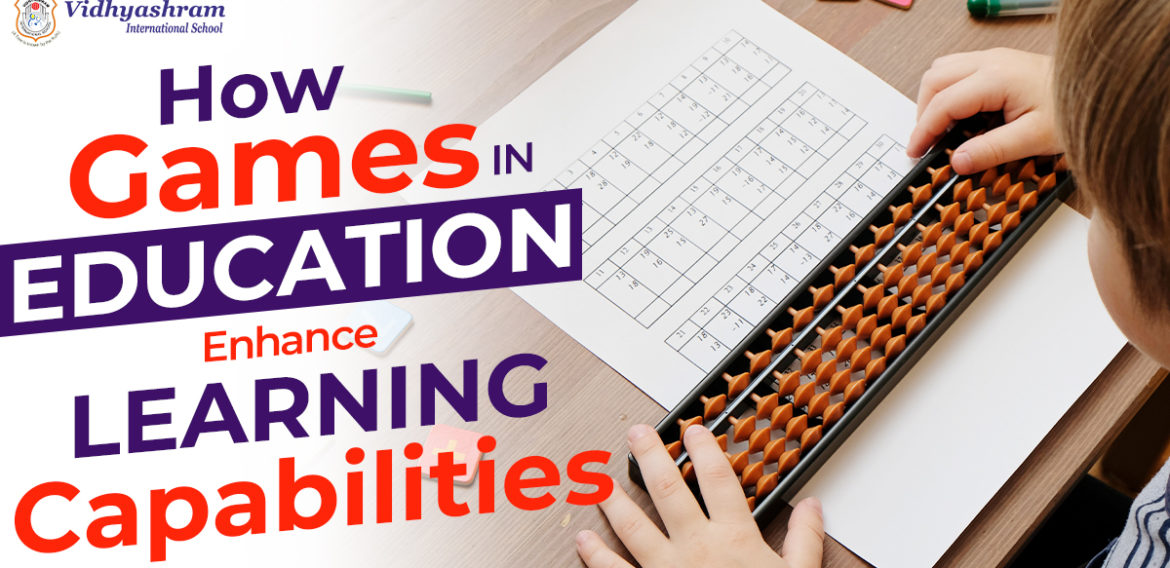How Games in Education Enhance Learning Capabilities
Games in education aren’t just about doing fun activities. Most of the primary schools around the world are using games and related principles to foster learning in students. Playing the right games in the classroom can not only make the environment competitive for students but also help in creating an experience that is more collaborative, engaging, and motivating.
The role of gameplay in schools is all the more important for students who find it challenging to focus and learn things, especially in COVID-19 situations where it was difficult in remote classrooms to keep the students connected virtually. It helped a lot in keeping the children connected and motivated.
Several types of research and studies reveal the importance of games in education. For instance, Routledge research shows that games enhance social and emotional learning, improves student participation, and encourages the kids to take risks.
Furthermore, it enhances the attitude of children towards learning new things and improves their academic scores. A few more benefits of games in the classroom include better focus and attention and the development of interests in reading.
However, it should also be taken into account that games can’t be the complete substitution for other important forms of learning. Schools need to create a strategy to include the games in education and use these as a tool where it seems relevant.
Importance of Games in Students Life
- Reduce stress
For kids, the traditional ways of learning like noting down questions and answers can prove to be a daunting task. Moreover, students start seeing schooling and education with a negative perception. However, if games are introduced to the learning to replace some notes and spreadsheets, it can reduce the burden from them. They will feel less stressed and enjoy what they learn. Eventually, a positive perception is developed among them.
- Motivation
Games in education are also great to motivate the children in learning other things besides academics. They understand how to pay attention and concentrate, encourage participation, and become responsible for their own learning.
Generally, kids feel like skipping school and specific classes when they don’t feel motivated to learn. However, if you bring games that they enjoy, it will change things and motivate them to attend classes regularly.
- Competitiveness
When the same game is played by several students, it becomes competitive. Kids like to win the games and stay ahead of their peers. When this approach of competing becomes a habit, this also helps in making them feel the same for their classroom learning and increase their academic score. They also learn how to support their peers in learning activities.
- Improve memory power
When we talk about the importance of games in our life, the way some games improve memory power can’t be ignored. There are several content-specific games for children that can be brought to the classroom and help in learning important topics quickly.
The gamified learning experience in schools is proving to be very crucial to encourage students to learn new topics and improve memory power.
- Team building and cooperation
Games work as a way to bring together the students and put effort as a team. These things improve the cooperation and understanding of each other. In addition, they learn the power of working as a team, respect each other, play fairly, and know the positives.
- Problem-solving
Most of the games need the students to have a plan and strategy to solve problems. It makes them think of new methods and ways to solve those problems and reach the next level in the game. This approach helps students to become problem-solving, improve mental cognition, and stimulate the mind to find new strategies.
Wrapping Up:
The importance of games in education can’t be ignored when there are numerous benefits of it. It improves their memory power, helps them become competitive, reduce stress, feel motivated to attend the classes, learn to work in a team, support the fellow students, learn new methods to solve problems, and improve the academic score as well. Games make the learning experience fun and enjoyable, while enhancing their overall learning capabilities.
Also read – How to Improve Concentration & Focus of Primary School Children?









